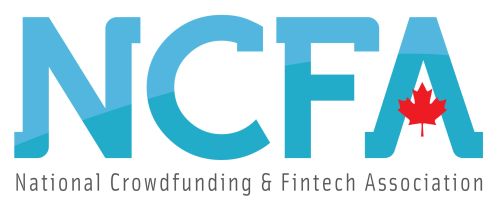BNPL | May 28, 2024

 Image: Unsplash
Image: UnsplashWhat CFPB’s New BNPL Rules Mean for Fintechs and Financial Institutions
Buy Now, Pay Later (BNPL) credit services have grown at a forceful pace in recent years and are pushing regulators to rewrite the consumer lending playbook. These services have made it possible for customers to make large purchases using installment payments instead of paying the full bill in one go. Recognizing this shift, effective July 22, 2024 the Consumer Financial Protection Bureau (CFPB) has issued an interpretive rule to subject BNPL providers to the same existing regulatory framework binding traditional credit card issuers. The move is aimed at increasing consumer protection with BNPL transactions and to ensure fair lending within the growing sector. Here’s a look at what’s changing and what it means for fintechs and financial institutions. See: press release
Background and Rationale
Over the last couple of years, BNPL services—led by companies such as Afterpay, Klarna, and Affirm—have grown explosively, giving consumers easy access to splitting their purchases into smaller chunks, often interest-free. Key growth drivers have been the service’s attractiveness relative to traditional credit, ease of onboarding, and ease of use. The speedy scaling of these companies has been met with growing concerns over consumer protection and financial literacy.
New Definition of Card Issuers
BNPL providers are now defined as “card issuers” under Regulation Z. Similar regulatory requirements for card issuers (credit card companies) are now required for BNPL providers, which includes consumer safeguards:
See: Experian to Include Apple’s BNPL Data in Credit Reports
- Required dispute settlement, such as a time-bound investigation and resolution
- Streamlined refund process is made available in case the product is returned
- Periodic detailed billing statements showing all the fees and charges
- BNPL providers are generally exempt from subpart G of Regulation Z. Several part G topics exist in the CFPB rule, such as certain penalty fee limits and the ability-to-repay requirements
Implications and Compliance
This will be an industry-wide change, in which many BNPL providers (especially smaller ones) will have to make a complete overhaul of their operations. While large providers may already embrace some of these practices, the baseline standards will be applicable to everyone with the new rule. The latter might level the playing field (with traditional card issuers) but also contribute to additional costs in terms of compliance and regulatory oversight.
The rule will benefit consumers in many ways. They are expanded protections that ensure consumers can dispute charges and obtain refunds with less fear of financial injury or inconvenience. Requiring more transparent billing should also make it easier for consumers to understand the terms of their BNPL agreements, and therefore make more informed financial decisions. Overall, the proposed changes will make for a safer and clear lending environment for BNPL users.
See: Klarna’s Meteoric Rise in the Canadian Financial Ecosystem
The best way to comply with the new regulation is to review current practices and check their relevancy with the new regulatory requirements. The customer service and dispute resolution teams must be adequately trained to deal with complaints in an appropriate manner. This amounts to the building of sound billing arrangements, offering clear statements useful to the consumer. The BNPL player should engage legal and regulation experts to be updated on further developments or adjustments to the rule.
Outlook
The willingness of the CFPB to take in public comments and adjust the rule as the case might be is an indicator that the BNPL services will be anything but a changing regulatory environment. The new interpretive rule provides BNPL providers with the protections offered by Regulation Z and ensures that consumers benefit from similar rights and that potential risks are limited to those observed with other types of credit cards. For financial institutions and fintechs, this rule requires strategic adjustments and a long term commitment to compliance.
FAQ
What is Regulation Z?
Regulation Z, also known as the Truth in Lending Act (TILA), is a federal law enacted in 1968 to promote informed use of consumer credit by requiring disclosures about its terms and cost. It applies to various types of credit, including mortgages, credit cards, and other consumer loans.
See: 37% Globally to Use Local Payment Methods by 2028
How does the new CFPB rule impact BNPL providers?
It considers BNPL providers “card issuers” under Regulation Z and, therefore, when it becomes mandatory to comply with its consumer protection measures, including dispute resolution and the need to issue a detailed billing statement.
What are some of the consumer protections included in the new rule?
What comes to mind is the right to dispute charges, streamlined refund processes, and periodic billing statements with a disclosure of all fees and charges from BNPL loans.
What are the exceptions to the new BNPL rule?
In general, the rule exempts BNPL providers from subpart G of the Regulation Z, which provides for the limits on certain penalty fees and the ability-to-repay requirements.
How can fintech companies ensure compliance with the new rule?
See: Putting it Into Perspective: Buy Now, Pay Later and Consumer Debt
Fintech companies should vet their practices against the new regulatory requirements, invest in strong billing systems, and invest in training for their customer service departments while engaging with experts in the legal and regulatory field to keep them updated on any further development.
What is the future for BNPL regulation?
BNPL services are still evolving in regulation, and both the fintechs and traditional financial services institutions should remain proactive to these changes and keep on changing their strategies in order to comply and be ahead in the competition for responsible lending practices.

 The National Crowdfunding & Fintech Association (NCFA Canada) is a financial innovation ecosystem that provides education, market intelligence, industry stewardship, networking and funding opportunities and services to thousands of community members and works closely with industry, government, partners and affiliates to create a vibrant and innovative fintech and funding industry in Canada. Decentralized and distributed, NCFA is engaged with global stakeholders and helps incubate projects and investment in fintech, alternative finance, crowdfunding, peer-to-peer finance, payments, digital assets and tokens, artificial intelligence, blockchain, cryptocurrency, regtech, and insurtech sectors. Join Canada’s Fintech & Funding Community today FREE! Or become a contributing member and get perks. For more information, please visit: www.ncfacanada.org
The National Crowdfunding & Fintech Association (NCFA Canada) is a financial innovation ecosystem that provides education, market intelligence, industry stewardship, networking and funding opportunities and services to thousands of community members and works closely with industry, government, partners and affiliates to create a vibrant and innovative fintech and funding industry in Canada. Decentralized and distributed, NCFA is engaged with global stakeholders and helps incubate projects and investment in fintech, alternative finance, crowdfunding, peer-to-peer finance, payments, digital assets and tokens, artificial intelligence, blockchain, cryptocurrency, regtech, and insurtech sectors. Join Canada’s Fintech & Funding Community today FREE! Or become a contributing member and get perks. For more information, please visit: www.ncfacanada.org
Related Posts
- SEO Powered Content & PR Distribution. Get Amplified Today.
- PlatoData.Network Vertical Generative Ai. Empower Yourself. Access Here.
- PlatoAiStream. Web3 Intelligence. Knowledge Amplified. Access Here.
- PlatoESG. Carbon, CleanTech, Energy, Environment, Solar, Waste Management. Access Here.
- PlatoHealth. Biotech and Clinical Trials Intelligence. Access Here.
- Source: https://ncfacanada.org/cfpbs-new-bnpl-rule-for-fintechs-and-financial-institutions/



